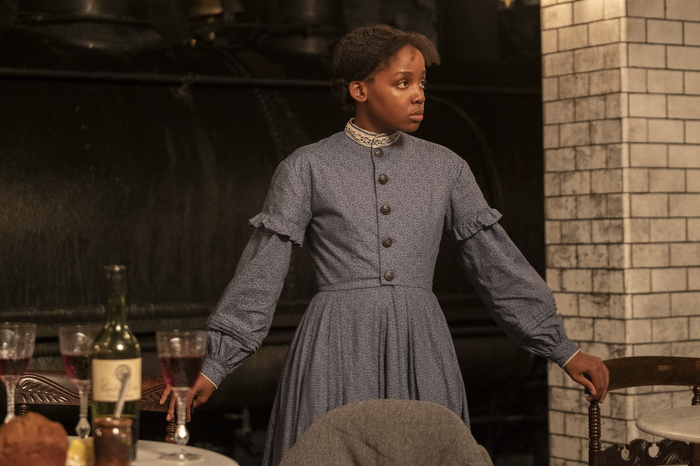Review: “The Underground Railroad”
“The Underground Railroad” represents Academy Award Winner Barry Jenkins’ latest dramaturgy, an epic mini-series that recounts the horrors of Antebellum America while showcasing the power of perseverance. “The Underground Railroad” is playing at the IFC from July 16 to July 22.
“The Underground Railroad,” directed by Academy Award Winner Barry Jenkins, is a historical drama miniseries set in the Antebellum South. As Cora (Thuso Mbedu) travels northbound, this miniseries portrays the atrocity of American slavery while showcasing the power of perseverance. (Photo by Kyle Kaplan, Courtesy of Amazon Studios)
July 16, 2021
Academy Award winning director Barry Jenkins is known for his revealing works about the Black experience — “Moonlight” and “If Beale Street Could Talk.” His most recent endeavor, “The Underground Railroad” is an ambitious mini-series portraying the atrocity of American slavery while studying the timeless phenomenon of human individuality and perseverance.
We first meet Cora (Thuso Mbedu) as an enslaved person living on the Randall plantation in Georgia. As she runs from state to state, the setting and characters change with each episode. Jenkins focuses on each location Cora settles in as she travels northbound. Cora’s journey is imbued with flourishes of magical realism as she travels underground in a literal locomotive. Based on the Pulitzer Prize winning novel by Colson Whitehead, “The Underground Railroad” is not a typical travel narrative, but instead a story about Cora taking back possession of herself and coming to terms with her mother’s abandonment.
Jenkins had always planned on making a project about American slavery. In a recent press conference, Jenkins said this series is “the most satisfying creative experience of [his] life.” Weary of the abridged version of slavery taught in many American schools, Jenkins took it upon himself to demonstrate the reality of America’s past. As often as lynching, whipping, burning and brutality are depicted, the feelings they instill of sickness and disgust are honest rather than overdone.
However, for every affliction Cora must face, there is an equally beautiful vision of resilience and innovation within Black culture. Jenkins’ representation of the railroad pays homage to this spirit. Jenkins’ underground railroad system is vast and ornately decorated, embodying the feelings of wonder and freedom the system carries with it. The combination of surrealism with hyper-realism speaks to the boundless possibilities within ourselves.
In typical Jenkins fashion, the series moves at a relaxed pace, allowing each moment to be processed justly. The period clothing is striking, the shots of the fields feel expansive and the underground is intricately designed. Similar to “Moonlight,” the lighting is a significant component; at times, it is dim enough that one can hardly see what they are watching, while other times so bright the light takes over the screen; the balance between light and dark, white and black, is present throughout the series.
Cora gets to know Black and white folks on all sides of the political spectrum. Throughout her travels, Cora meets a white man who believes in a great unifying spirit that endows individuals with a sense of equality regardless of the color of their skin. She stumbles upon one Black settlement that offers a seemingly normal life but doesn’t allow its populace to reproduce. She hides in the attic of an abolitionist living in a deeply racist town, and encounters another runaway who finds freedom in starving himself.
By interacting with a tapestry of complex characters, the viewer realizes the overwhelming scope and necessity of finding equity. The diversity between characters and ideas gives the story relevance, preventing the series from becoming yet another drab historical program. Instead, “The Underground Railroad” is a moving account of the transcendence possible within people of any background.
Contact Victoria Carchietta at [email protected]
























































































































































